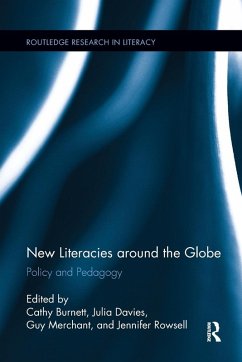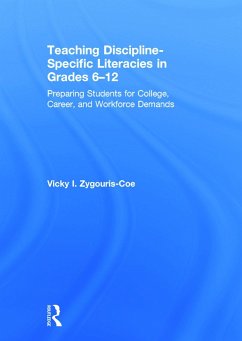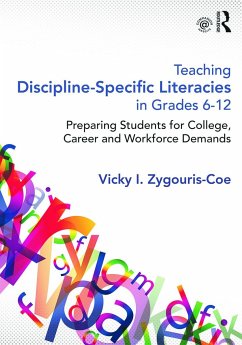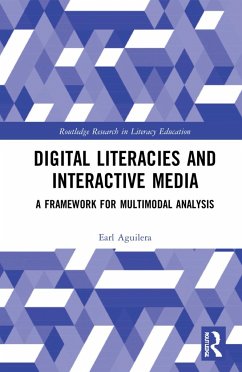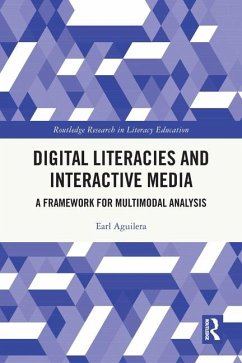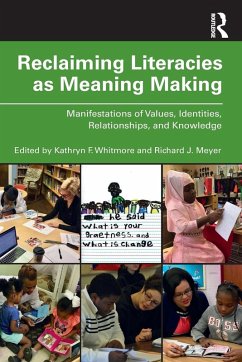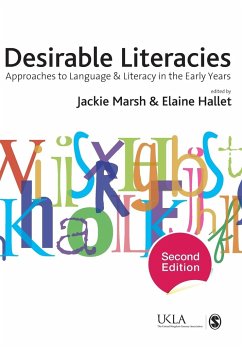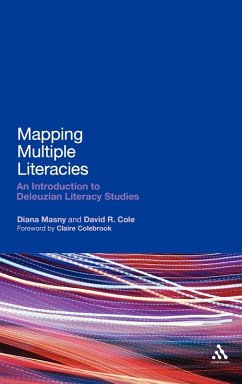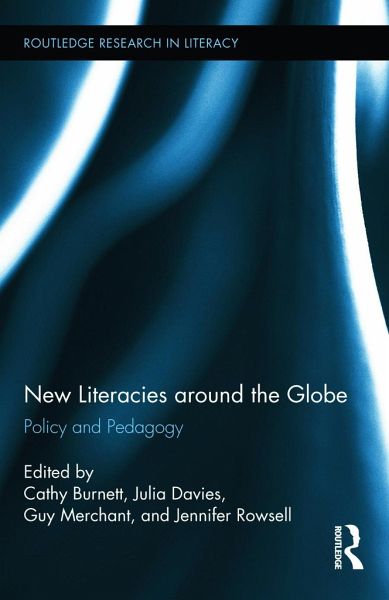
New Literacies around the Globe
Policy and Pedagogy
Herausgeber: Burnett, Cathy; Merchant, Guy; Davies, Julia
Versandkostenfrei!
Versandfertig in 1-2 Wochen
176,99 €
inkl. MwSt.

PAYBACK Punkte
88 °P sammeln!
The increasing popularity of digitally-mediated communication is prompting us to radically rethink literacy and its role in education; at the same time, national policies have promulgated a view of literacy focused on the skills and classroom routines associated with print, bolstered by regimes of accountability and assessments. As a result, teachers are caught between two competing discourses: one upholding a traditional conception of literacy re-iterated by politicians and policy-makers, and the other encouraging a more radical take on 21st century literacies driven by leading edge thinkers ...
The increasing popularity of digitally-mediated communication is prompting us to radically rethink literacy and its role in education; at the same time, national policies have promulgated a view of literacy focused on the skills and classroom routines associated with print, bolstered by regimes of accountability and assessments. As a result, teachers are caught between two competing discourses: one upholding a traditional conception of literacy re-iterated by politicians and policy-makers, and the other encouraging a more radical take on 21st century literacies driven by leading edge thinkers and researchers. There is a pressing need for a book which engages researchers in international dialogue around new literacies, their implications for policy and practice, and how they might articulate across national boundaries. Drawing on cutting edge research from the USA, Canada, UK, Australia and South Africa, this book is a pedagogical and policy-driven call for change. It explores studies of literacy practices in varied contexts through a refreshingly dialogic style, interspersed with commentaries which comment on the significance of the work described for education. The book concludes on the 'conversation' developed to identify key recommendations for policy-makers through a Charter for Literacy Education. .



